Impact stories
Since the start, we have partnered with cities across Africa, the Middle East, Latin America, Asia and Europe. Each project is described through an impact story highlighting the project’s challenges, good practices and solutions, outcomes and opportunities, potential impact, lessons learned and recommendations as well as its relevance to related SDGs. The projects have either implemented the entire Her City process or have focused on specific blocks, activities and steps to meet the particular local needs.
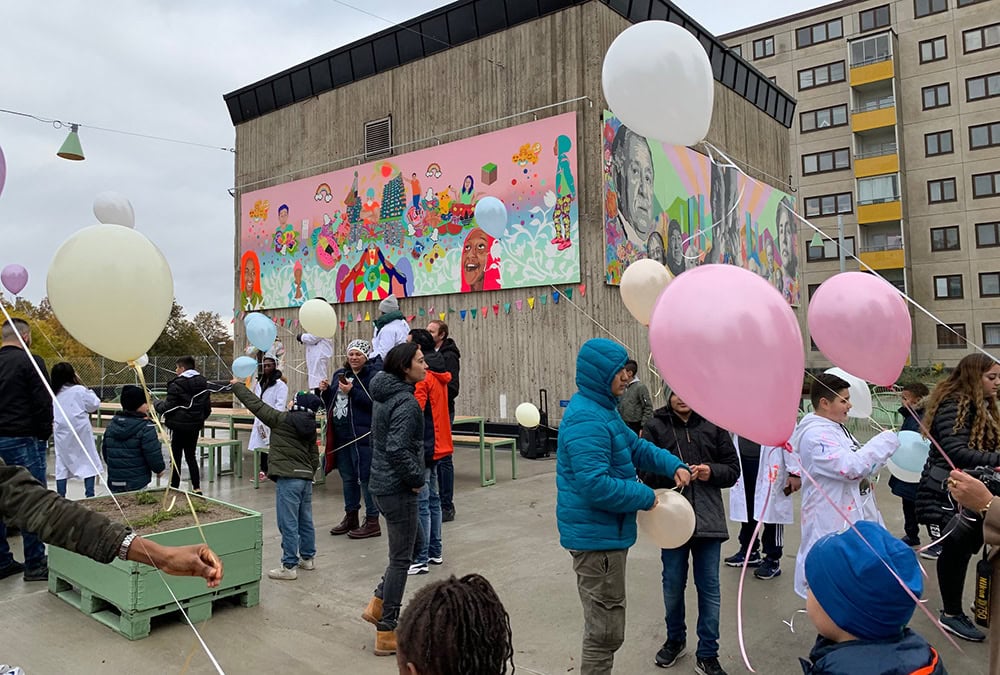
The project #UrbanGirlsMovement was instrumental in developing the global Her City methodology, toolbox and digital platform. Global Utmaning and UN-Habitat co-facilitated the project with the municipality, which resulted in an outdoor living room developed together with young girls and renovation and lightening of the mall building on the main square. Plans and designs were also developed for the new library area, the bus station, and the underground station. 100 multi-stakeholders contributed to a wider regeneration approach of 4 sites, impacting 15,000 daily lives. The process, designs and the girls’ solutions continue to influence actors’ ways of working and are spreading in the area.
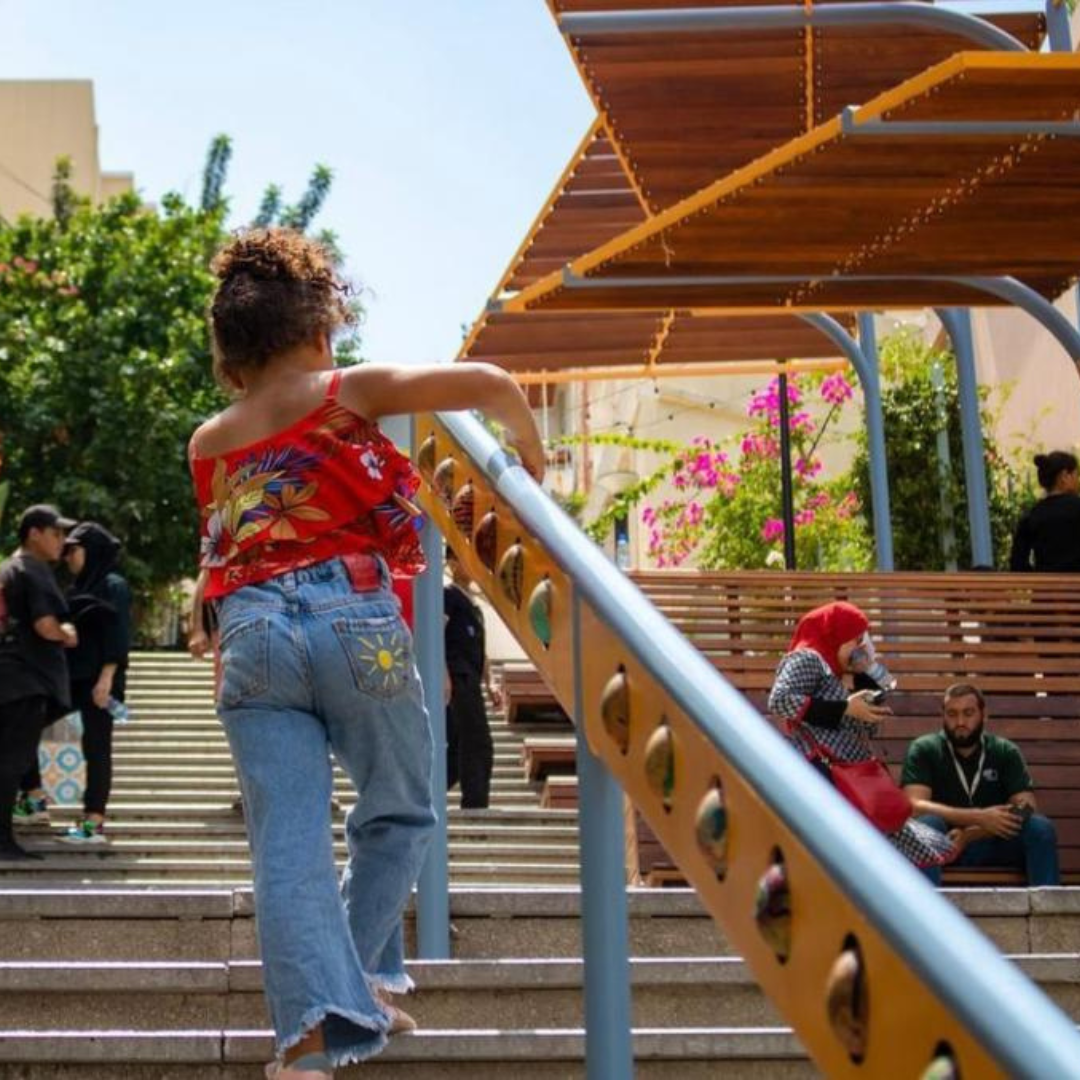
UN-Habitat’s Her City project in Beirut focuses on the two neighbourhoods Mar Mikhael and Gemmayzeh. The targeted public spaces were affected by the blast in 2020 and the project aimes to regenerate and upgrade the urban spaces. The main focus of the project is three public stairs: St Nicholas, Laziza and Vendome stairs. The project is led by UN-Habitat Lebanon and Catalytic action with 100 participants in 3 sites, impacting 30,000 daily lives so far.
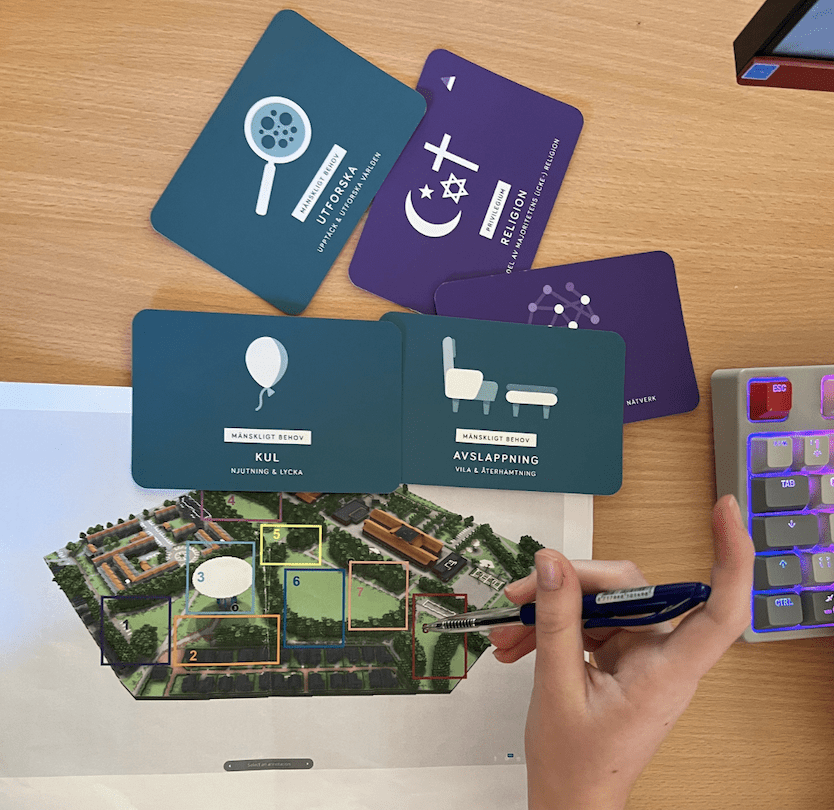
The Her City Chania project is a unique project
where UN-Habitat and the Chania Technical University of Crete developed a course, “Planning the Smart and Virtual City” making use of the Her City methodology for the academic curriculum. The seminars taught the 9 blocks and trained undergraduate students in the use of the digital tools. They made action-oriented assessments in a variety of different parts of the city. The course engaged 40 urban planning undergraduate students with support from the municipality of Chania. They focused on 12 different public spaces in Chania, potentially impacting over 60,000 inhabitants.
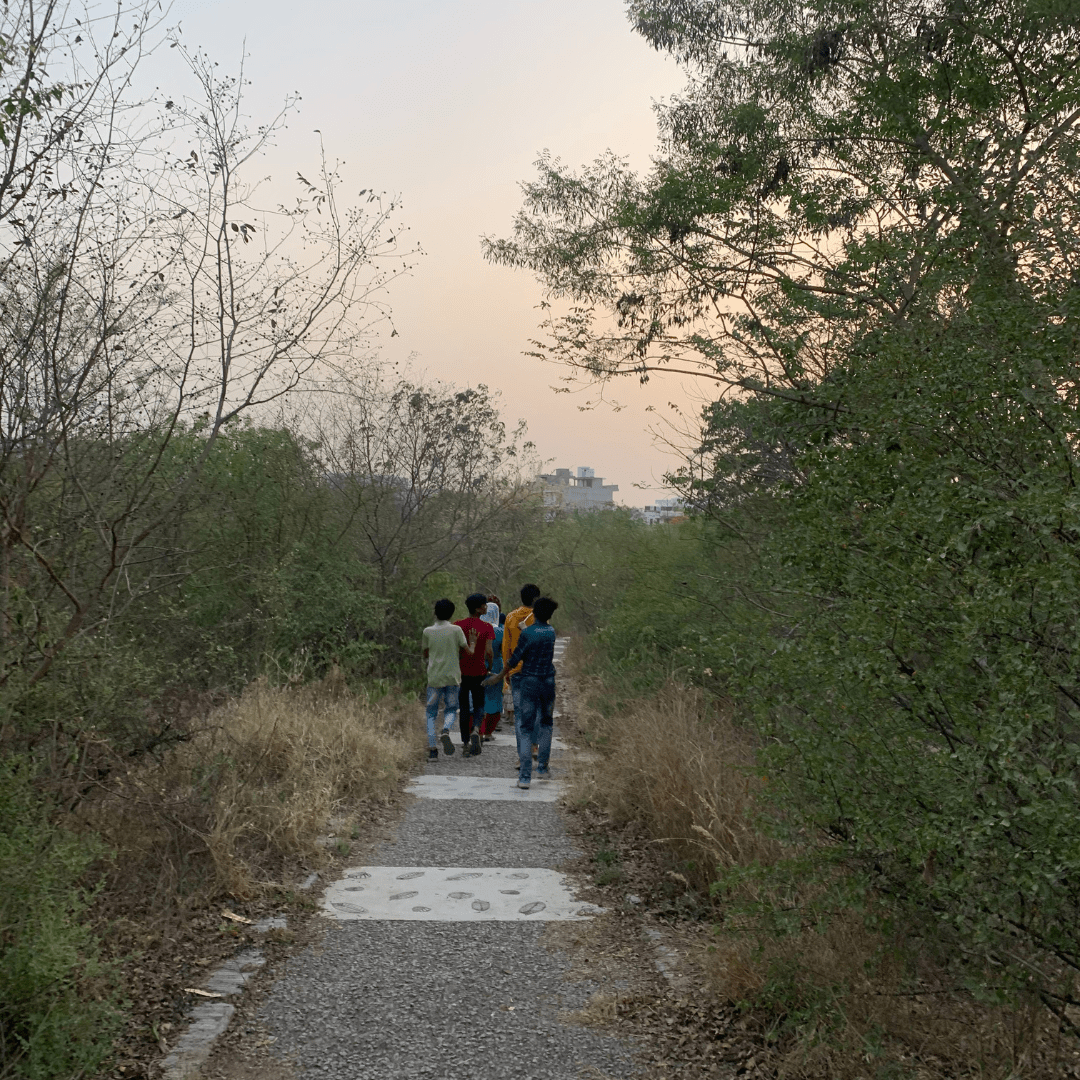
The ‘Youth led, Nature-Culture Living Labs in India’, are carried out in the Badshahpur Forest Corridor, Wazirabad channel, entry area to Gurugram, Anath Road and Ghazipur settlement. The projects are utilising local culture and knowledge as a foundation for implementing nature-based solutions. The project is a joint partnership between Sida and Swedbio, local partners and UN-Habitat. Approximatly 100 stakeholders contributed to 5 sites, potentially impacting 25,000.
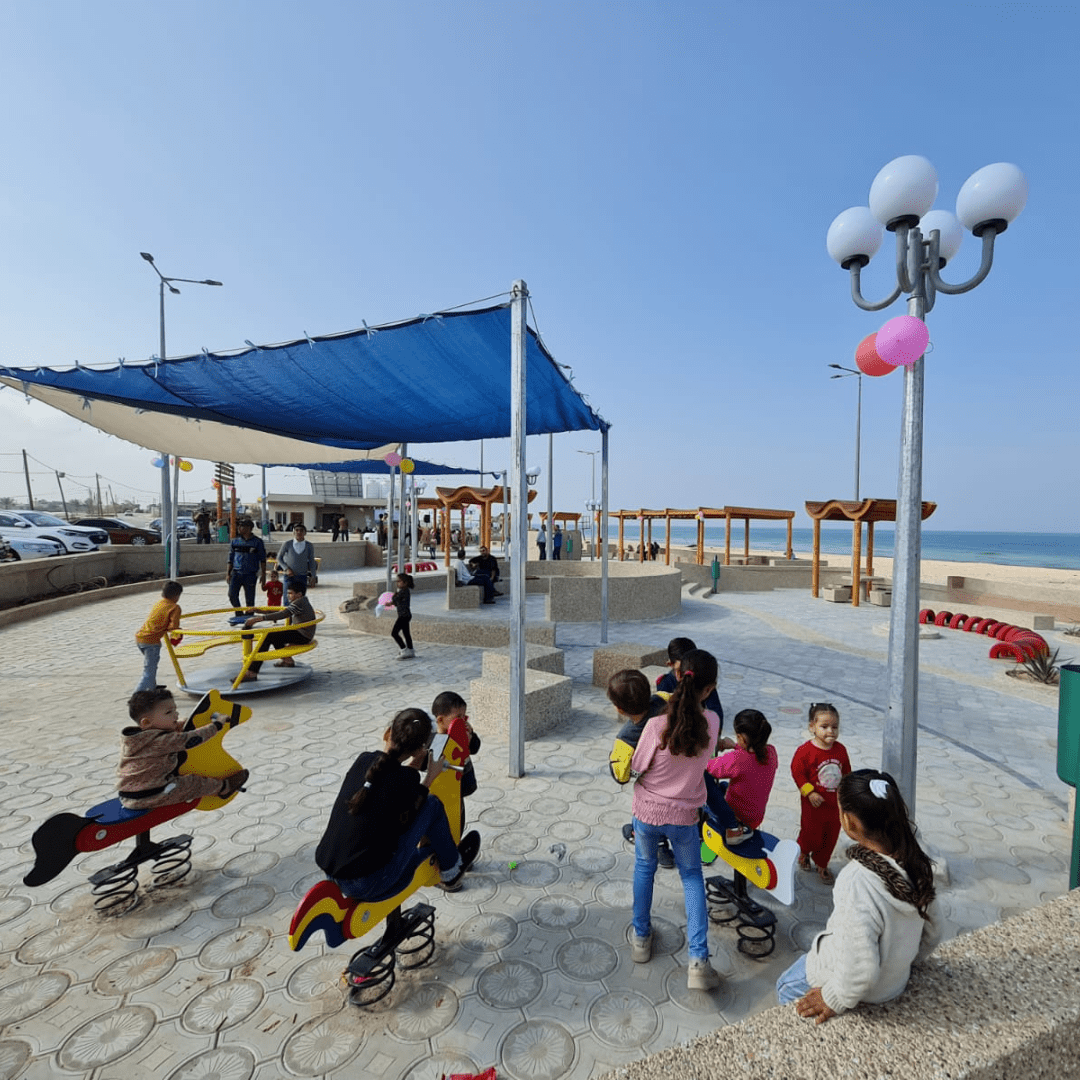
In the Haya joint program, UN-Habitat Palestine, UN Women and partners address and contribute to preventing violence against women and girls in targeted cities in the West Bank and the Gaza Strip. Local authorities and multi-stakeholders including women and girls, promoted youth leadership and proposed recommendations for a nation-wide strategy informing the world’s first ‘Public Space Policy for Local Government Units ́. So far 100 participants contributed to 8 analysed and rebuilt sites, impacting over 300,000 women and 300,000 men.
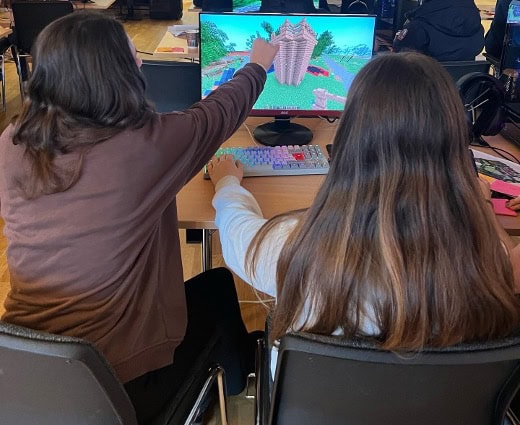
The Her City project in Fredriksdal, Helsingborg, Sweden was a joint collaboration between Helsingborg municipality, UN-habitat, Block by Block Foundation and Global Utmaning. Fredriksdal is a low-income area compared to Helsingborg city at large and has a lower voter turnout. The Her City process was carried out within the framework of the City of Helsingborg’s work with school holiday internships and young people were engaged to influence the design of Fredriksdal. The ambition was to increase security and well-being in the area. The neighbourhood is undergoing densification and the ambition was to make it a child-friendly area with accessible green spaces. 50 multistakeholders contributed to 1 site, potentially impacting 5,000 daily lives.
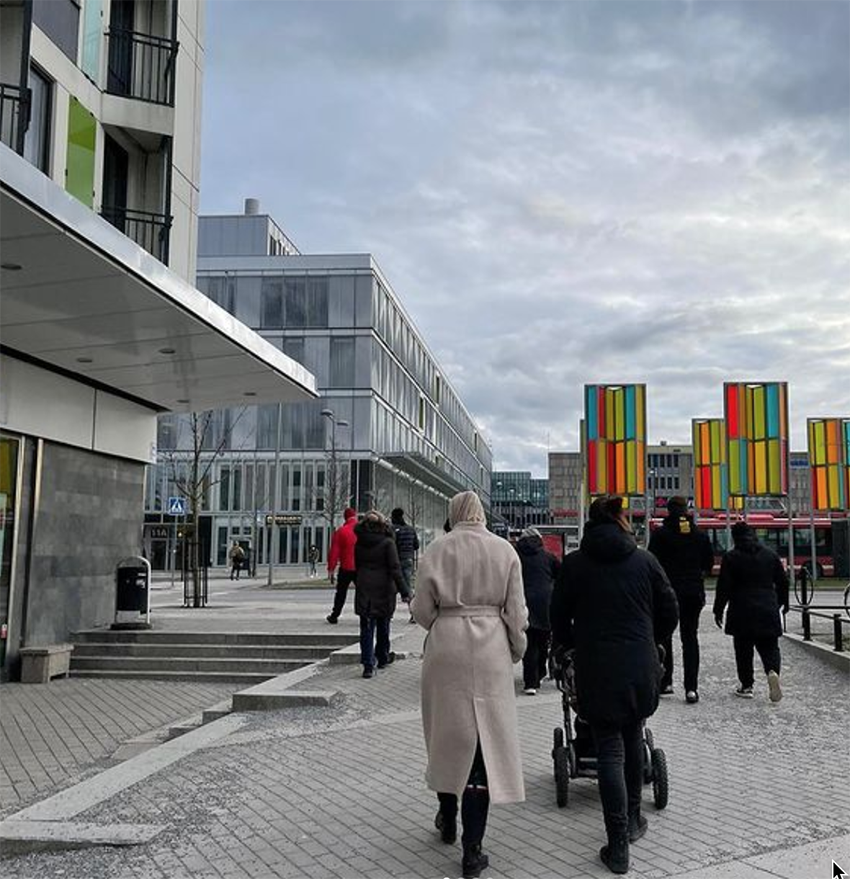
The Her City project in Flemingsberg in Sweden ‘Urban Challenges’ was a joint initiative together with a range of private partners such as MTR Nordic and Fabege, as well as the Huddinge municipality. The project was facilitated by the civil society organisations Impact Hub and Changers Hub and funded by the Swedish Institute. The project focuses on the area Hälsovägen located in accessible urban mobility with a specific concentration on safety in public transportation and station areas. 50 multistakeholders contributed to 1 site, potentially impacting 5,000 daily lives.
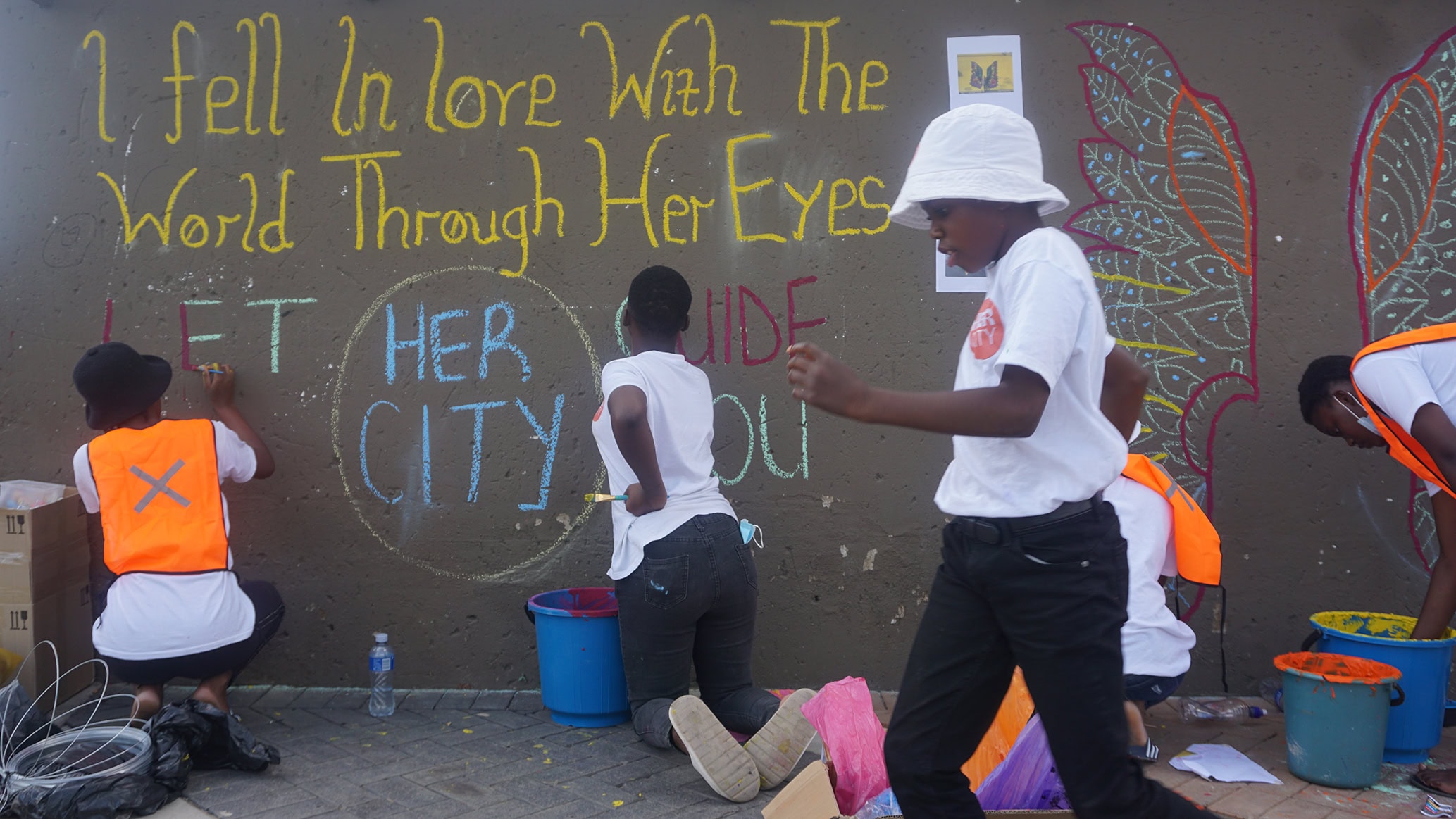
In the Diepsloot township, the Johannesburg Development Agency, UN-Habitat and partners initiated the “Indlela Yabafazi – Women’s Way” project. It aimed at creating safe routes, improve mobility and connecting safe public spaces in the informal settlement. Through participatory planning and community engagement, 100 multi- stakeholders made proposals and developed a tactical urbanism intervention, for a redesigned site with a focus on accessibility, affordability, safety potentially impacting 5,000 daily lives.
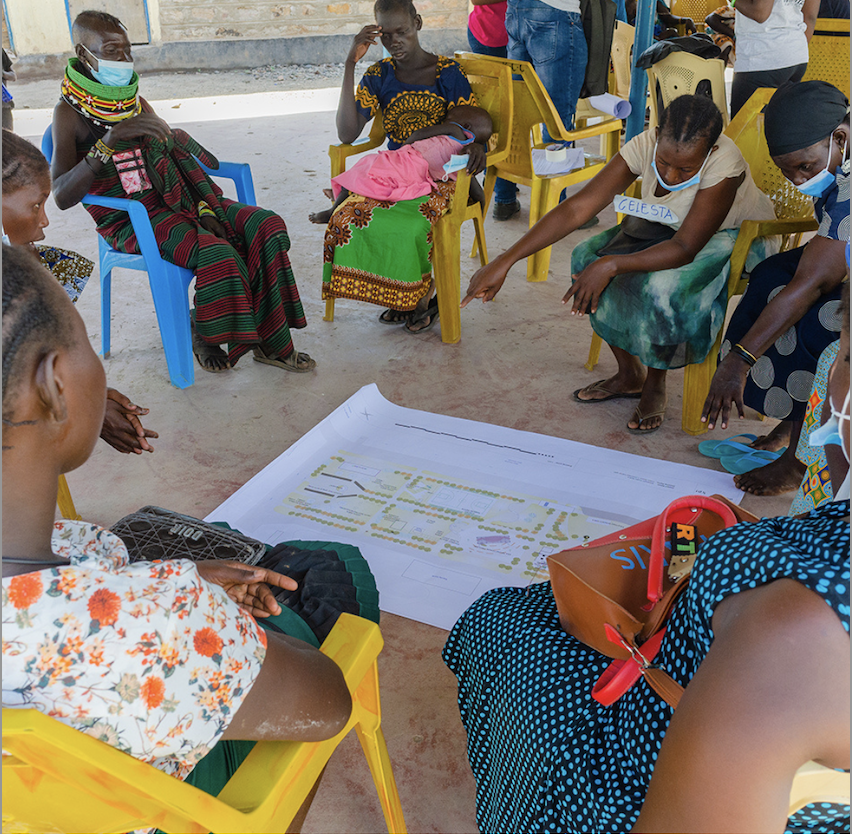
The “Ensuring accessibility and a strengthened conflict resolution strategy for refugee host community integration in Kalobeyei, Turkana County” programme supports inclusive accessibility to public spaces through a series of engagements with host and refugee members. Through engaging women, children, men, youth, and people with disabilities, accessible, inclusive, safe, and comfortable public spaces were co-created. The community-driven approach emphasised the importance of children’s play and recreation, spaces for women to meet and conduct business, shaded zones for respite from the extreme heat, and multifunctional sports and games areas. 100 multi-stakeholders contributed to 1 site, potentially impacting 5,000 daily lives.
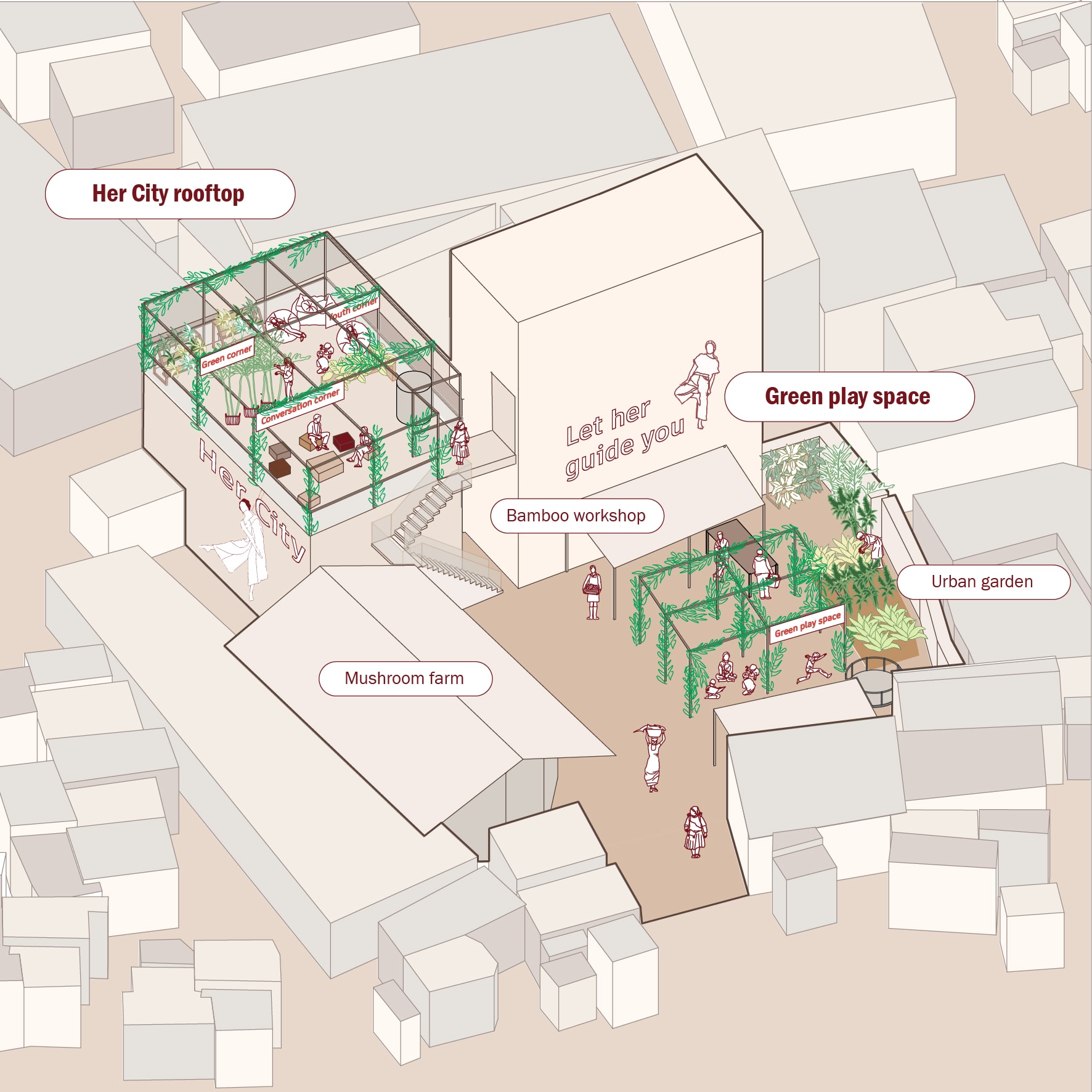
The ‘Youth led, Nature-Culture Living Labs in India’, are carried out in the Badshahpur Forest Corridor, Wazirabad channel, entry area to Gurugram, Anath Road and Ghazipur settlement. The projects are utilising local culture and knowledge as a foundation for implementing nature-based solutions. The project is a joint partnership between Sida and Swedbio, local partners and UN-Habitat. Approximatly 100 stakeholders contributed to 5 sites, potentially impacting 25,000.
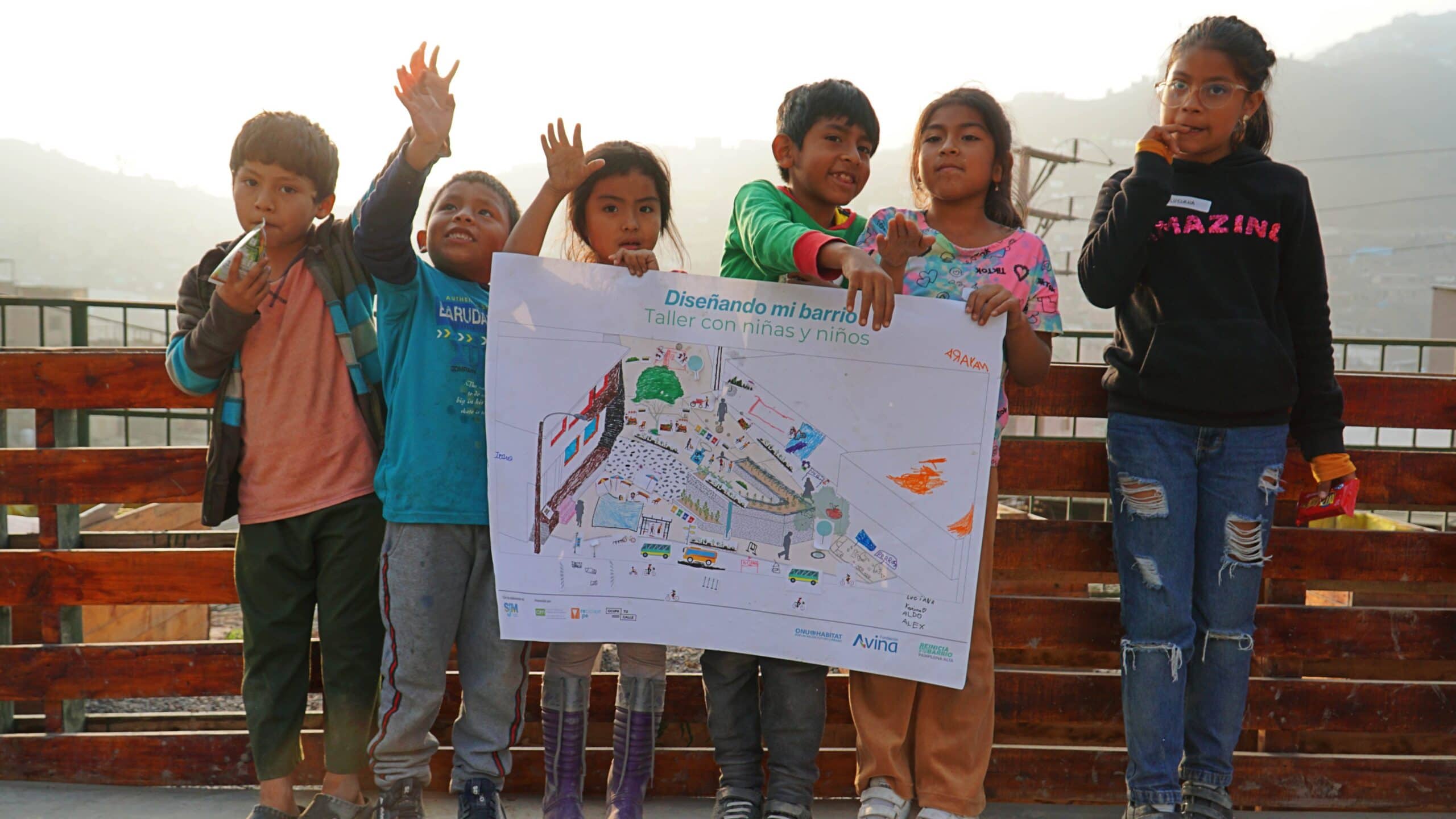
UN-Habitat, partners Ocupa Tu Calle, Mano a Mano, AVINA, and donor Block by Block Foundation, co-implemented the Her City Women Builders Initiative. It has catalysed urban regeneration and promoted female financial independence in the districts of La Ensanada and Pamplona Alta. Over 140 women joined forces to improve the conditions of 4 public spaces, integrating areas for green and urban agriculture and enhancing accessibility of the neighbourhoods, impacting 30,000 inhabitants.
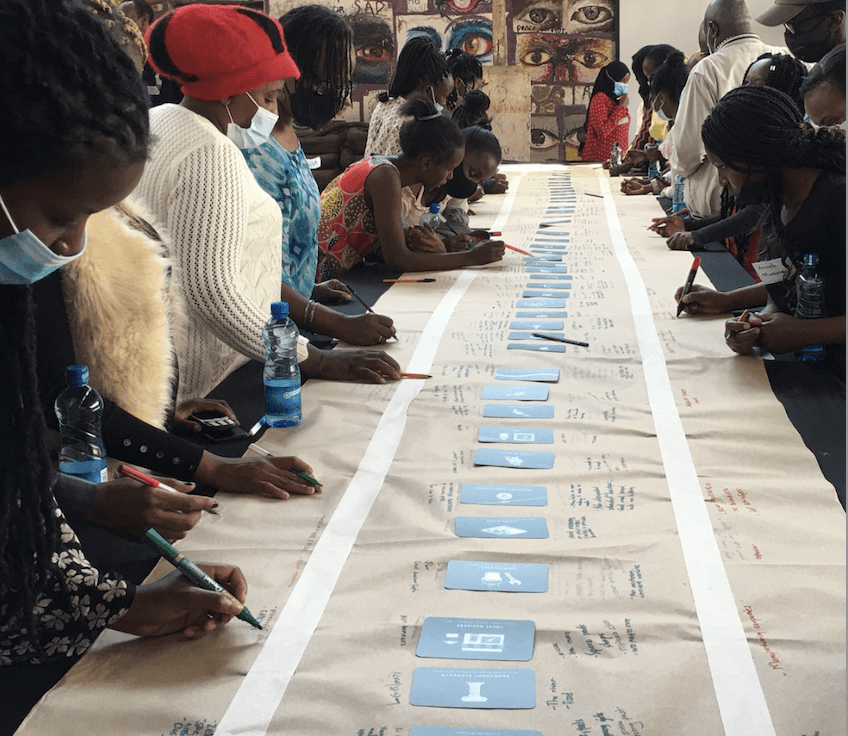
‘Her City – Her Streets’ by the GoDown Arts Centre aims to improve the Dunga and Dundori streets around the upcoming New GoDown Cultural Arts Complex in Nairobi together with UN-Habitat and partners. It aims at more accessible streets and inclusive public spaces, accommodating a diversity of shared commercial, social, and cultural activities and inviting all Nairobians to become a part of the new cultural hub. 100 multi- stakeholders contributed to 1 site, potentially impacting 5,000 daily lives.
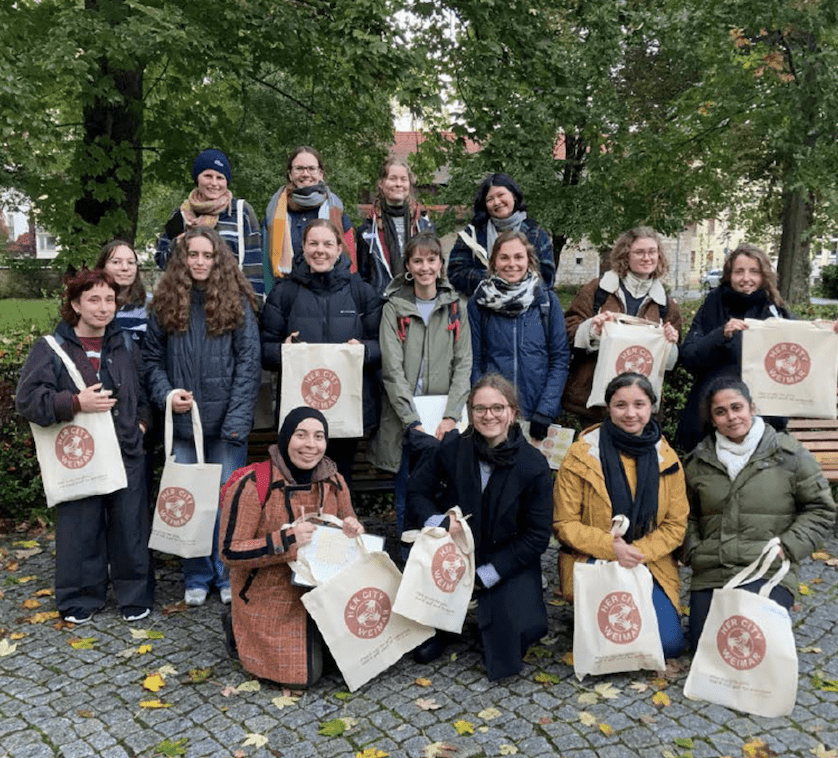
Masters students at the Bauhaus University focused on 6 public spaces in the old town of Weimar. The work consisted of applying the Her City toolbox, focusing on data collection of movement and public life measurements. 250 participants contributed to the citizen survey, and extensive advocacy work took place to sensibilise both decision-makers and the wider public, potentially impacting 30,000 inhabitants.
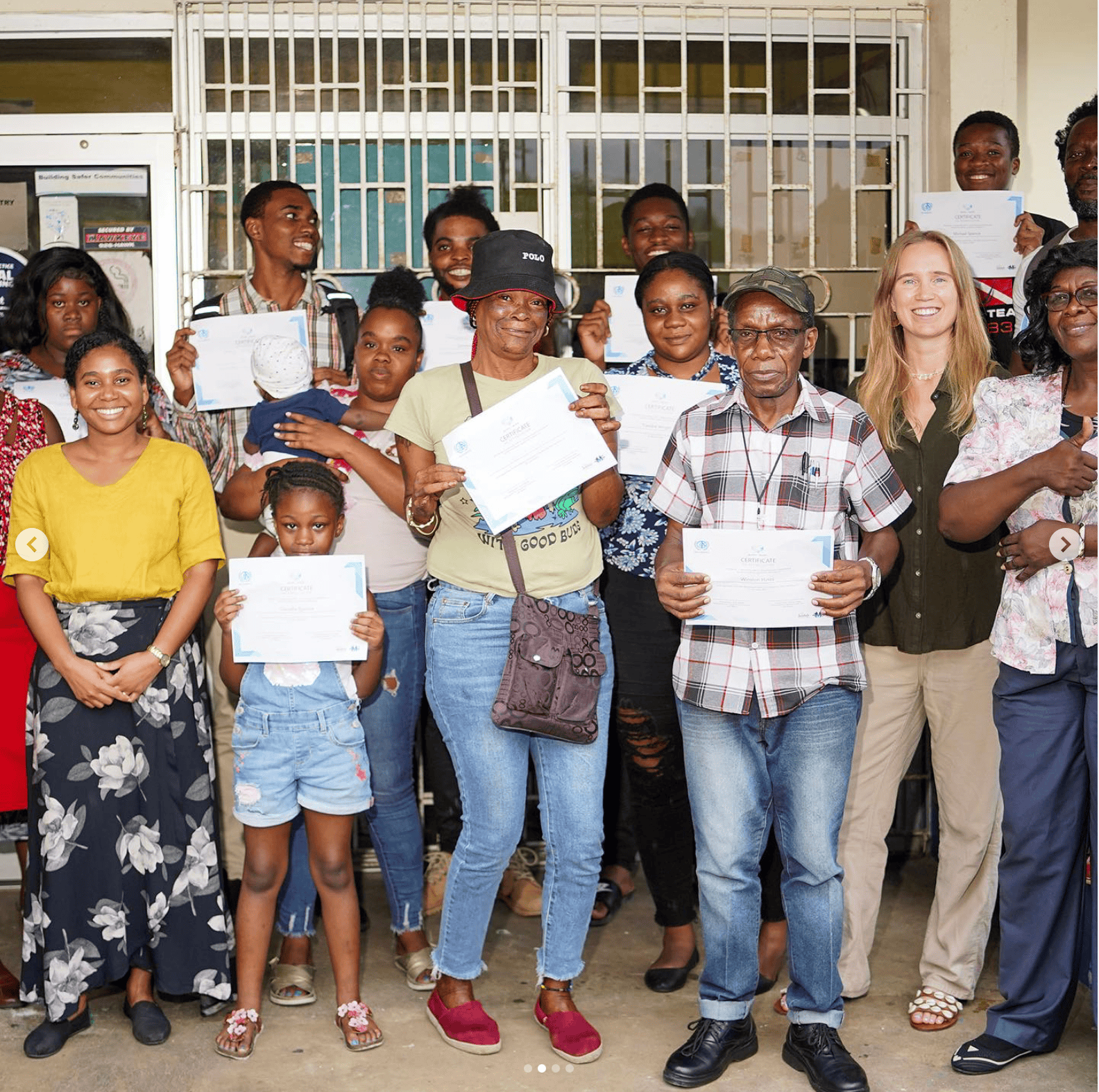
The Canterbury Community Center and Public Space Project, an initiative of UN-Habitat, Saint James Municipal Corporation, and Sandals Foundation, is transforming an open space in Canterbury, Montego Bay, into a vibrant, green, and safe community area, enhancing resilience and fostering social cohesion, recreation, and social services. During an intensive month 100 community members were engaged in workshops using the Her City toolbox, and 1 rebuilt site will impact 5,000 people.
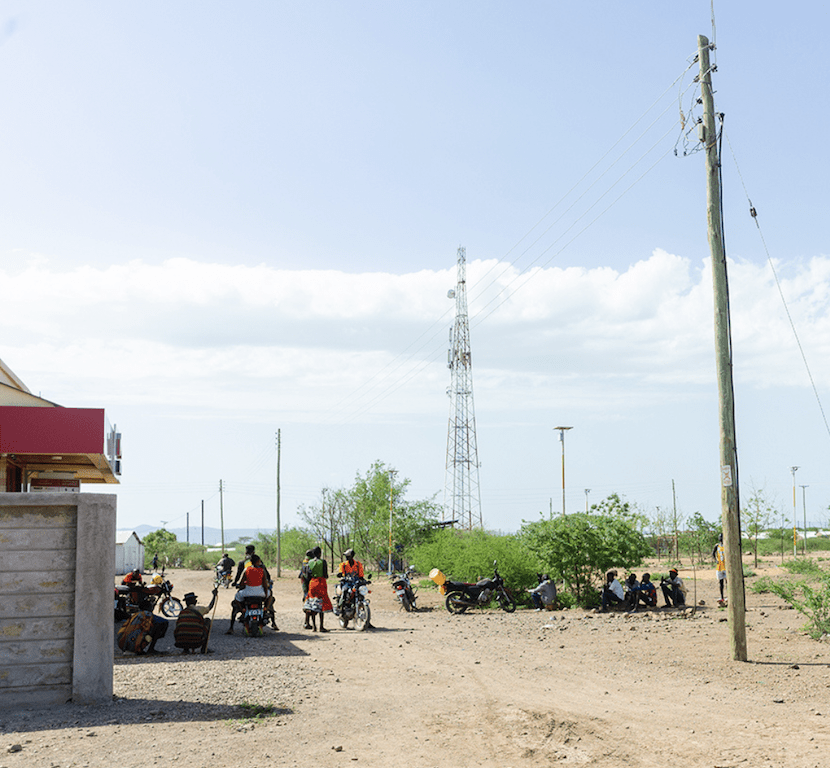
In the Diepsloot township, the Johannesburg Development Agency, UN-Habitat and partners initiated the “Indlela Yabafazi – Women’s Way” project. It aimed at creating safe routes, improve mobility and connecting safe public spaces in the informal settlement. Through participatory planning and community engagement, 100 multi- stakeholders made proposals and developed a tactical urbanism intervention, for a redesigned site with a focus on accessibility, affordability, safety potentially impacting 5,000 daily lives.
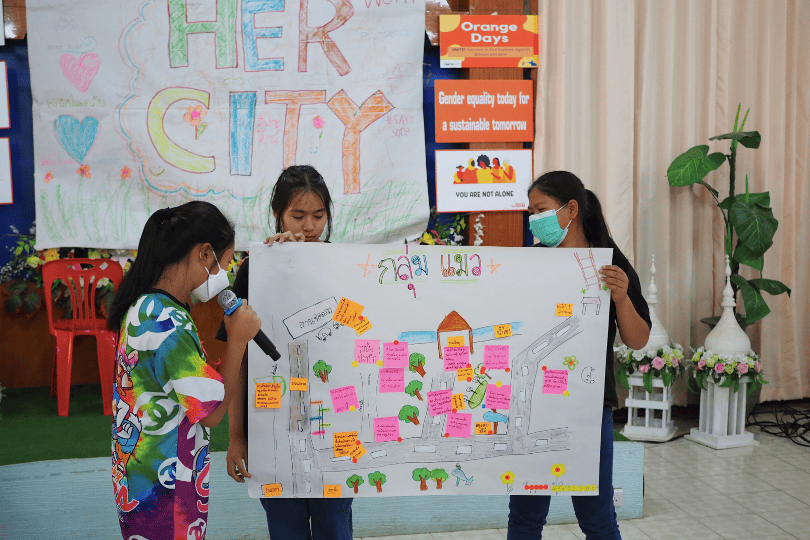
In the Her City Thailand pilot project, UNFPA and UN-Habitat conducted neighbourhood assessments with the community in the Chiang Khong district. Adolescent girls and youth from ethnic minority and migrant groups participated in activities using the Her City Toolbox including exploratory walks and comparative analysis. The pilot is expected to be scaled to other cities in Thailand. Approximatly 50 stakeholders contributed to 1 site, potentially impacting 5,000.
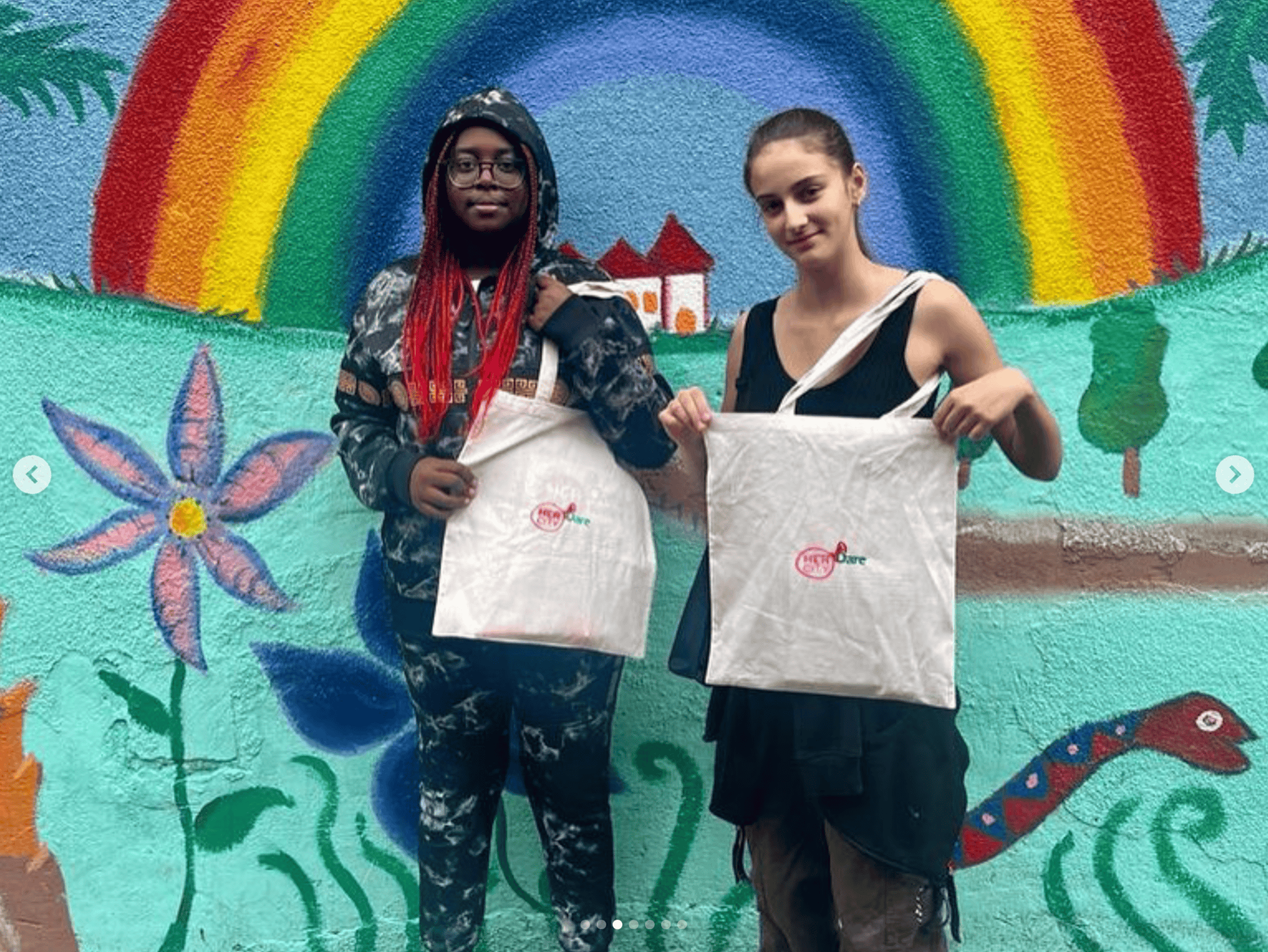
In Her City Corvetto, the multicultural neighbourhood is battling increasing discrimination and criminality. Dare.NGO is using the Her City toolbox together with local girls, local grassrots organisations and the municipality providing community-based solutions to improve accessibility and safety for all in and around the Gabriele Rosa Square. 100 multi-stakeholders are contributing to 1 site, potentially impacting 5,000 daily lives.
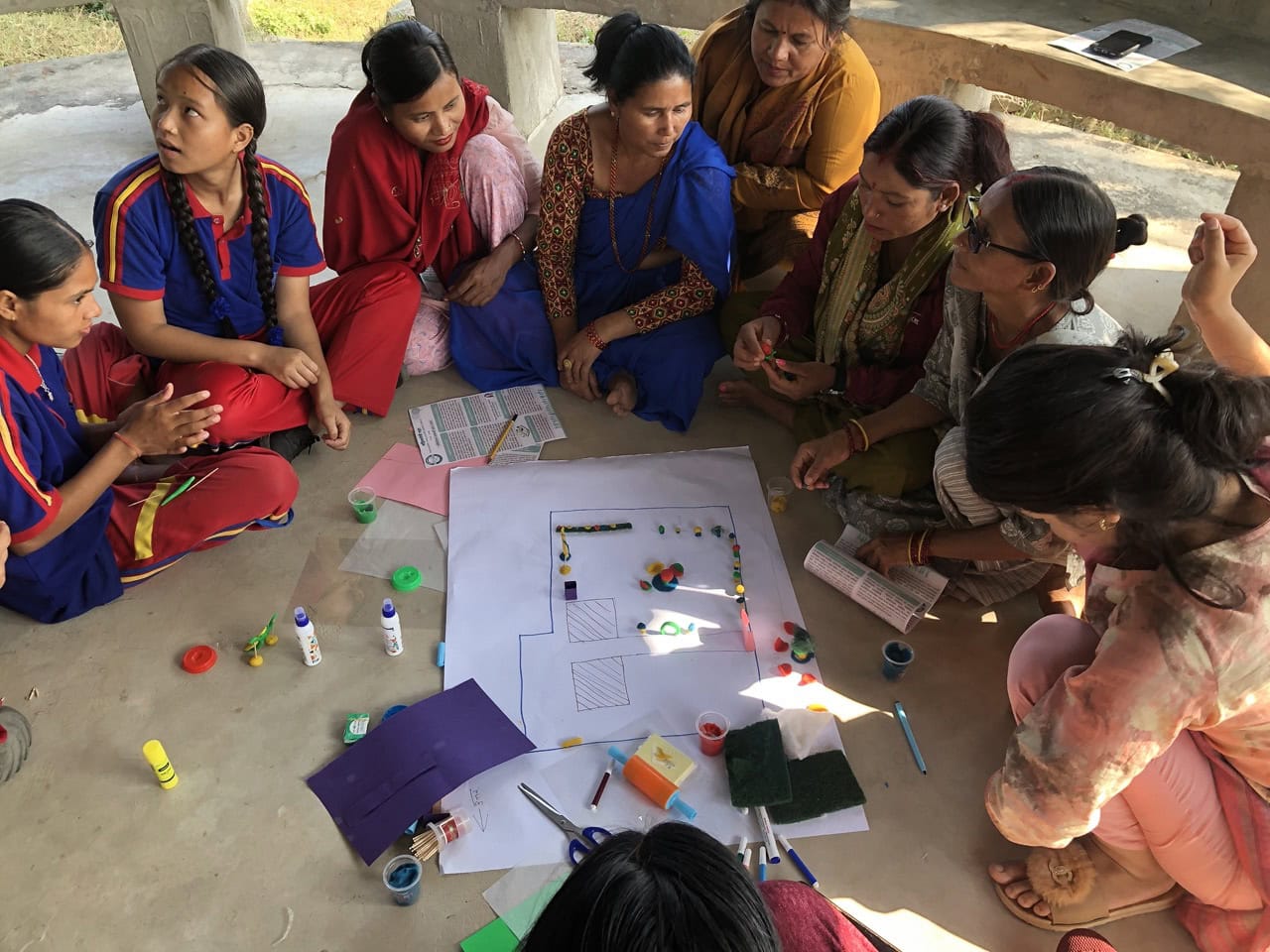
The ‘Cities 4 Women’ project, funded by the EU and USAID and implemented by UNOPS, UN-Habitat and Cities Alliance, aims to enhance the demand for gender-responsive, climate-resilient public spaces through participatory urban planning and design. By evaluating community-prioritized open spaces based on risk and accessibility, the project focuses on co-designing these areas. Engaging a diverse range of stakeholders including children, youth, senior citizens, local leaders, and women’s groups, the project emphasises inclusivity and collective ownership throughout the design process. The co-design workshops facilitate collaboration among these stakeholders, allowing them to share ideas and develop context-specific solutions that meet community needs in public open spaces. The project also aims at policy guidance at national level.

Baltpart is a capacity building project, providing skills and knowledge on participatory methods for Ukrainian urban professionals. Participating teams have been trained in tools and methods for inclusive participatory planning and design, such as Her City Toolbox, and the Her City Guide has been translated to Ukrainian to make the method easier to apply in Ukrainian cities. Four projects are using Her City tools in local initiatives, focusing on identity, restoration, and regeneration. These include the House of Officers in Mykolaiv, led by the Mykolaiv Development Agency and City Council, the Drohobych Saltworks, Katernych Palace in Bobrovytsia, and Potocki Palace in Ivano-Frankivsk.

Costa Rica
The SDG Cantons Network is a Costa Rican
national initiative that seeks to accelerate the
achievement of the SDGs at the local level
and includes 53 out of the 84 cantons of the
country. Seeking to strengthen the Network,
UN-Habitat in collaboration with IFAM,
MIDEPLAN, and the Resident Coordinator’s
O!ce of Costa Rica, has partnered with UNDP,
UN Women, and UNODC and to accelerate
the localization of the SDGs through digital
transformation with a gender perspective.
Ongoing efforts are focused on bridging
the digital divide, empowering women, and
embedding gender-transformative governance
models at the local level. Under the project
“Accelerating SDG Localization Through Digital
Transformation”, supported by the Joint SDG
Fund, the agencies aim to collaboratively
position Costa Rica as a regional champion for SDG localization.
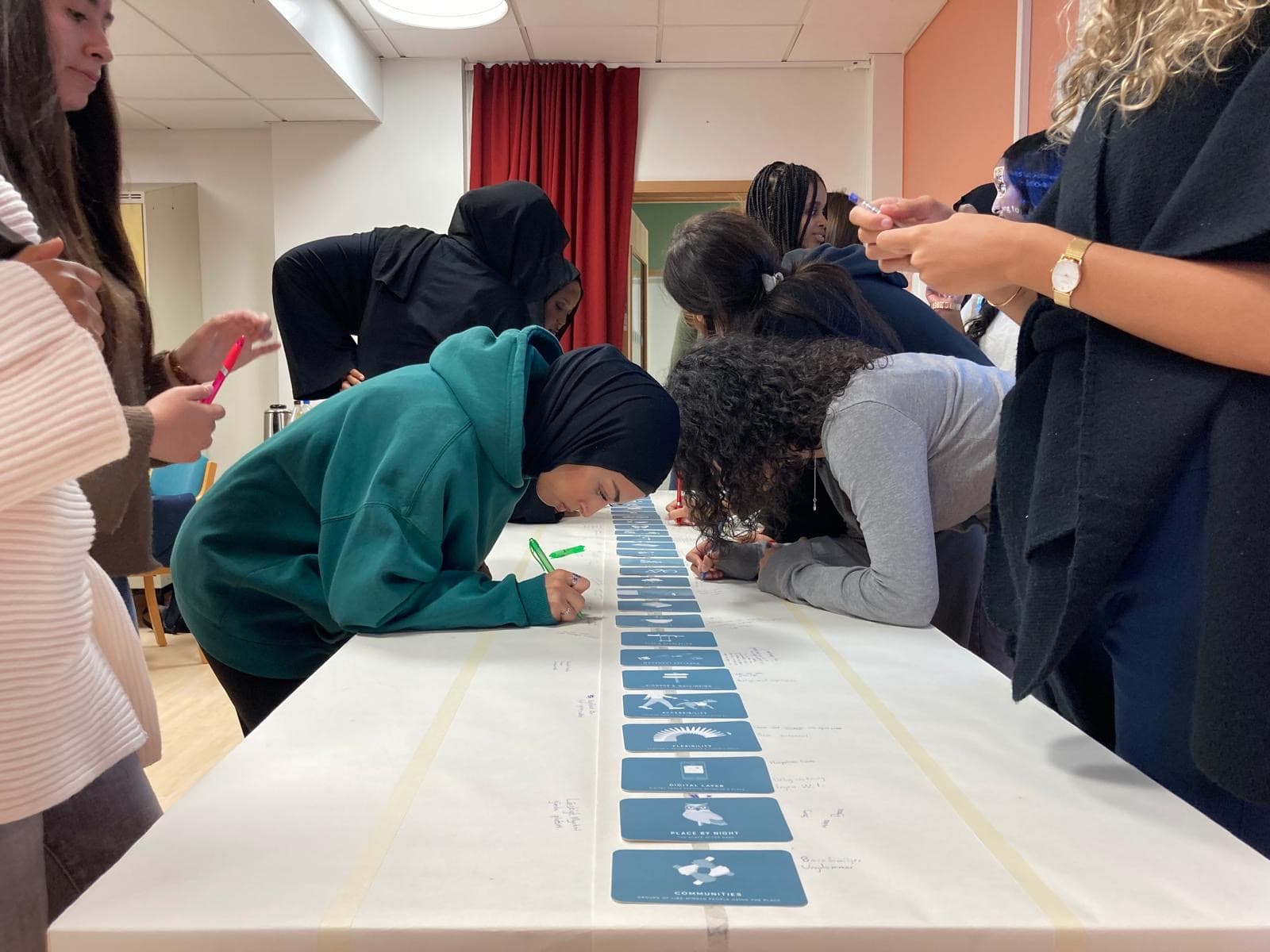
Eskilstuna
The Her City project in Fröslunda engaged 25 girls from Jensen Gymnasium, architects, researchers, and Eskilstuna Municipality to co-create safer, inclusive, and sustainable public spaces. Using the Her City Toolbox, participants mapped and analyzed the area, identifying needs related to safety, accessibility, and social inclusion. Through SET-PED, the group explored solar technology and renewable energy integration, developing concepts for solar-powered urban furniture that foster community interaction and energy awareness. Led by Eskilstuna Municipality and Shared City Foundation, in collaboration with UN-Habitat and Dalarna University, the pilot contributes to transforming Fröslunda into a safe, vibrant, and climate-smart meeting place for over 5,000 residents..
Mascalucia
The Her City Mascalucia project, part of the European SET-PED initiative, is implemented in Mascalucia, northern Catania, to co-create inclusive and energy-positive public spaces. Building on Monte Ceraulo Park, a 17-hectare green area on a historic lava formation, the project combines renewable energy, circular design, and smart urban furniture to foster community resilience.
A workshop with local children gathered insights on inclusive space design, shaping concepts that reflect community needs. Led by the University of Catania (UNICT) with local partners, the project promotes social equity, reuses local materials, and engages residents throughout the process — strengthening Mascalucia’s role as a resilient and sustainable community.
Bucharest
The Her City Bucharest project, part of the European SET-PED – Driving Urban Transition initiative, is implemented in Sector 6, Bucharest, around Lacul Morii Park. The project tackles challenges of urban density, fragmented green areas, and social inequality by promoting circular design and renewable energy solutions. Led by IntreVecini, Urbasofia, and the Sector 6 Municipality, the pilot reuses materials from local renovations to create smart, inclusive, and energy-efficient urban furniture. Through active community engagement, including vulnerable groups, the project supports the transformation of Lacul Morii into a safe, accessible, and sustainable public space, advancing Bucharest’s shift toward a positive energy district.
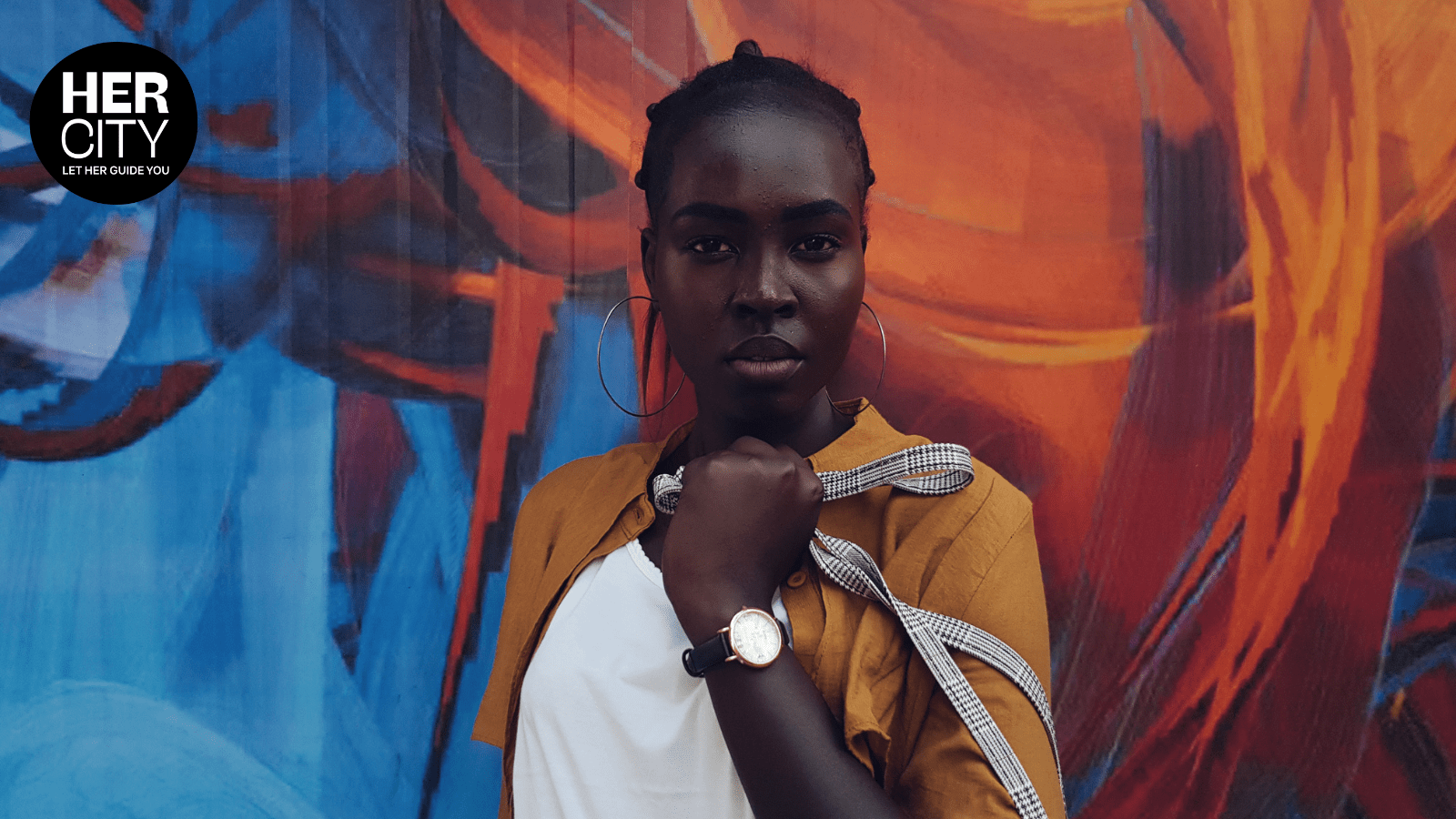
The Her City partnership projects have been jointly implemented by UN-Habitat and Shared City Foundation together with our local partners all over the world. Even if the projects vary in geography and character, there are many commonalities between these unique projects such as their focus on youth, on public space, on socio-economic vulnerable contexts.